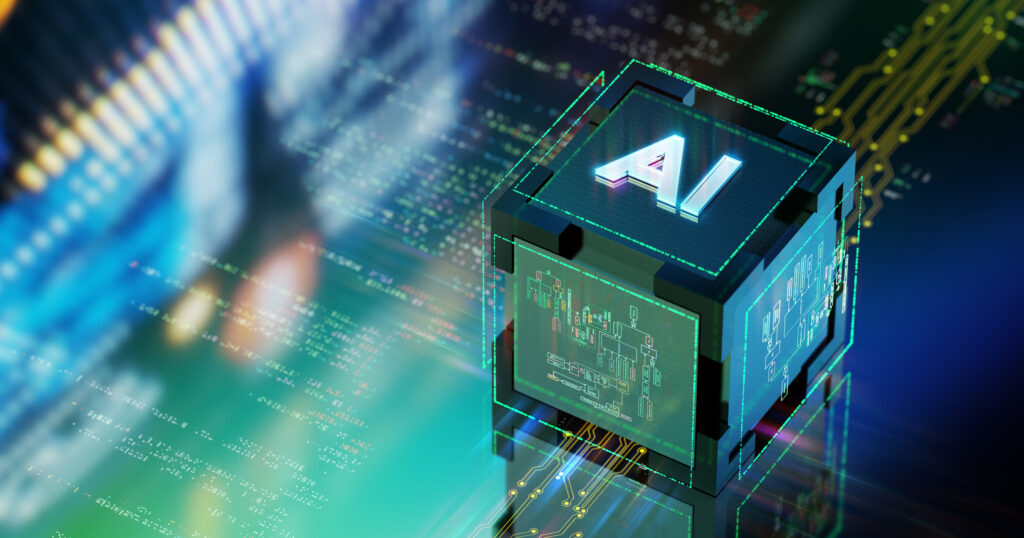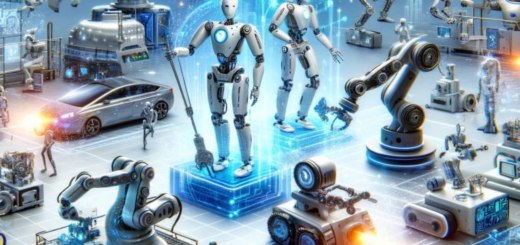Redefining Scientific Discovery with AI-Enhanced Research

Innovation has always been driven by a combination of human ingenuity and technological advancement. Throughout history, breakthroughs in research have depended on meticulous experimentation, data analysis, and iterative refinement. However, a new force is transforming how discoveries are made: artificial intelligence (AI).
Rather than replacing human researchers, AI is becoming an intelligent collaborator, assisting scientists in ways previously unimaginable. From automating complex calculations to generating hypotheses and even designing experiments, AI is accelerating progress across fields such as medicine, physics, and materials science. With its ability to process vast datasets, identify patterns, and predict outcomes, AI is revolutionizing the scientific method itself.
This article explores how AI is reshaping research, the emerging breakthroughs it is enabling, and the challenges that must be addressed to ensure responsible and impactful AI-driven innovation.
AI as a Research Partner: More Than Just a Tool
For decades, computational tools have assisted researchers in modeling complex systems, analyzing data, and simulating experiments. However, the latest wave of AI innovation goes beyond simple automation. Machine learning models can now identify hidden correlations, generate new scientific theories, and even propose solutions to previously unsolved problems.
Unlike traditional statistical models that rely on predefined formulas, AI-powered research tools:
- Learn from data without human-defined assumptions, enabling them to find unexpected insights.
- Simulate and predict outcomes at speeds far beyond human capability, reducing the need for costly trial-and-error experimentation.
- Bridge gaps between disciplines, combining knowledge from biology, chemistry, and physics to suggest novel interdisciplinary approaches.
These capabilities are reshaping the research landscape, allowing scientists to tackle more ambitious problems and expand the frontiers of human knowledge.
Breakthroughs Enabled by AI in Scientific Research
AI-driven research is already delivering significant breakthroughs across multiple disciplines. Some of the most transformative applications include:
1. AI in Drug Discovery and Biomedical Research
- Machine learning models are analyzing millions of chemical compounds, identifying potential drug candidates in weeks rather than years.
- AI-assisted protein structure prediction, such as DeepMind’s AlphaFold, is revolutionizing our understanding of biological processes and disease mechanisms.
- Personalized medicine is being enhanced by AI, which can analyze patient genetic data to recommend the most effective treatments based on individual biomarkers.
2. AI in Materials Science and Engineering
- AI-driven simulations are designing new materials with unprecedented properties, such as lighter, stronger, and more heat-resistant alloys.
- Quantum computing, combined with AI, is helping scientists discover new superconducting materials, potentially leading to breakthroughs in energy efficiency.
- AI is optimizing nanomaterial development, accelerating research into next-generation semiconductors, batteries, and sustainable materials.
3. AI in Climate Science and Environmental Research
- AI-powered climate models are predicting extreme weather events with higher accuracy, improving disaster preparedness.
- Machine learning is being used to analyze satellite imagery, tracking deforestation, ocean currents, and CO₂ emissions in real time.
- AI-enhanced simulations are optimizing renewable energy storage and grid management, helping to accelerate the transition to sustainable power sources.
4. AI in Theoretical and Experimental Physics
- AI models are assisting physicists in identifying potential new particles by analyzing vast datasets from particle accelerators.
- Quantum computing research is leveraging AI to optimize complex quantum interactions, pushing forward new advancements in computational physics.
- AI-enhanced astrophysics models are identifying patterns in cosmic data, helping astronomers discover exoplanets and map dark matter distributions.
These examples highlight how AI is expanding the scope of scientific inquiry, helping researchers ask better questions, interpret data faster, and explore new frontiers more efficiently.
Challenges in AI-Powered Research
Despite its transformative potential, AI in research also presents significant challenges that must be addressed to ensure its reliability, fairness, and ethical deployment.
1. Data Bias and Model Limitations
- AI models are only as good as the data they are trained on. If datasets contain biases or incomplete information, AI-driven research can produce misleading results.
- Some AI-generated hypotheses may be scientifically plausible but impractical to test, requiring human oversight to assess feasibility.
2. Explainability and Trust in AI-Driven Discoveries
- Many deep learning models function as black boxes, making it difficult to understand how they arrive at certain conclusions.
- Scientists must develop explainable AI (XAI) techniques to ensure that AI-generated insights are transparent and reproducible.
3. The Ethical Implications of AI in Research
- AI-driven scientific breakthroughs—especially in fields like biotechnology and genetics—raise ethical concerns about privacy, consent, and potential misuse.
- Regulatory frameworks must evolve to balance AI-driven innovation with responsible scientific conduct.
4. The Computational and Environmental Cost of AI Research
- Training sophisticated AI models requires massive computational resources, leading to concerns about energy consumption and carbon emissions.
- Researchers are exploring energy-efficient AI models that minimize environmental impact while maintaining high performance.
Addressing these challenges will be essential for ensuring that AI remains a trustworthy and ethical partner in the pursuit of scientific knowledge.
The Future of AI in Research: What Lies Ahead?
Looking forward, AI’s role in research is expected to grow exponentially, unlocking new possibilities across various disciplines. Some key trends shaping the future include:
- AI-Powered Autonomous Labs: Fully automated research facilities where AI-driven robots conduct experiments, analyze results, and refine hypotheses with minimal human intervention.
- AI-Assisted Scientific Discovery Engines: Machine learning models that generate new scientific theories by analyzing historical discoveries and proposing novel research directions.
- AI in Space Exploration: AI will help scientists analyze interstellar data, navigate spacecraft autonomously, and identify extraterrestrial biosignatures.
- Hybrid Human-AI Research Teams: Scientists and AI systems will work in tandem, leveraging human creativity and AI’s computational power to solve complex global challenges.
These advancements will push the boundaries of knowledge, redefining how science is conducted and opening doors to discoveries that were once considered impossible.
Final Thoughts: The Dawn of AI-Augmented Discovery
AI is no longer just a tool for analyzing data—it is becoming an active participant in the scientific process, guiding researchers toward faster, smarter, and more impactful discoveries. From accelerating biomedical research to uncovering the mysteries of the universe, AI is redefining what is possible in science and innovation.
However, the rise of AI-driven research also comes with responsibilities. Scientists, policymakers, and AI developers must work together to ensure transparency, address ethical concerns, and establish robust validation methods. AI should enhance, not replace, human expertise, serving as a partner that amplifies scientific curiosity and creativity.
As AI continues to evolve, it holds the potential to fundamentally reshape our understanding of the world, driving discoveries that will shape the future of humanity.




